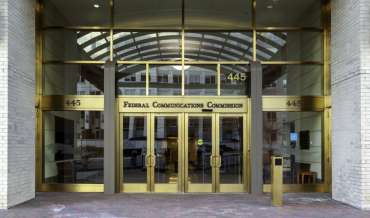A court ruling against the FCC will stand. The Supreme Court denied the class action plaintiffs’ petition in Bais Yaakov of Spring Valley v. FCC. The lawsuit is a rare instance where the court has made a decision that curbs the scope of the TCPA. By allowing the D.C. Circuit’s ruling to stand, it invalidated an FCC rule that required advertisers to place opt-out notices on solicited faxes or pay penalties for non-compliance.
For plaintiffs, it will now be more difficult to gain class certification for TCPA fax lawsuits. In recent years, plaintiffs have typically sought certification based on violations of the opt-out notice requirement for solicited faxes. Even though there aren’t many fax advertisers today, the ruling closes off an avenue used by attorneys to create TCPA lawsuits.
Court Decision Timeline
- In 2006 the FCC issued a rule that required opt-out notices be included on all faxes, even those sent after having obtained permission from the recipient.
- In 2010 Anda Pharmaceutical Inc., was the defendant in a class action that alleged they sent solicited fax advertisements without an opt-out notice as required under the FCC rule. The defendant petitioned the FCC for a declaratory ruling that the Junk Fax Prevention Act (JFPA) does not require businesses to include opt-out notices on solicited faxes.
- In 2014 the FCC issued an order affirming that the JFPA permitted the FCC to require an opt-out notice on all fax advertisements, regardless of whether permission had be given by the recipient prior to delivery. Anda appealed the order to the D.C. Circuit Court.
- In 2017 the US Court of Appeals for the D.C. Circuit invalidated the 2006 FCC rule. The court, in Bais Yaakov of Spring Valley et al. v. FCC, held that the FCC lacked the authority under the TCPA to require an opt-out notice on solicited faxes because the JFPA requires only that opt-out notices be included on unsolicited faxes. The plaintiffs filed a petition. (For more information about this decisions read our article “Court of Appeals Strikes Down TCPA Fax Rule”.)
- In 2018 the class action plaintiffs sought review of the D.C. Circuit’s 2017 decision that the FCC exceeded its statutory authority. The Supreme Court denied the plaintiffs’ petition, thereby affirming that the 2017 decision against the FCC stands.
From a regulatory standpoint, it appears that the tides may be turning in favor of marketers. While this is only one victory, let’s hope that the rest of the year has good news for the marketing industry. Still, litigators that abuse the system will continue to shift their targets on to the next victim of a TCPA lawsuit. To protect your business, you must continue using every resource available for remaining compliant with all regulations.





